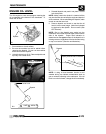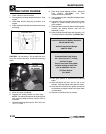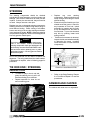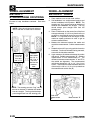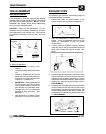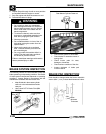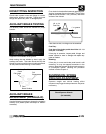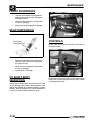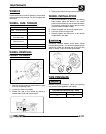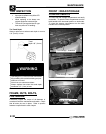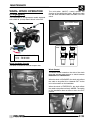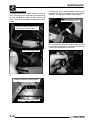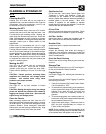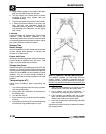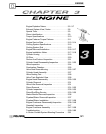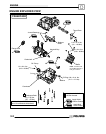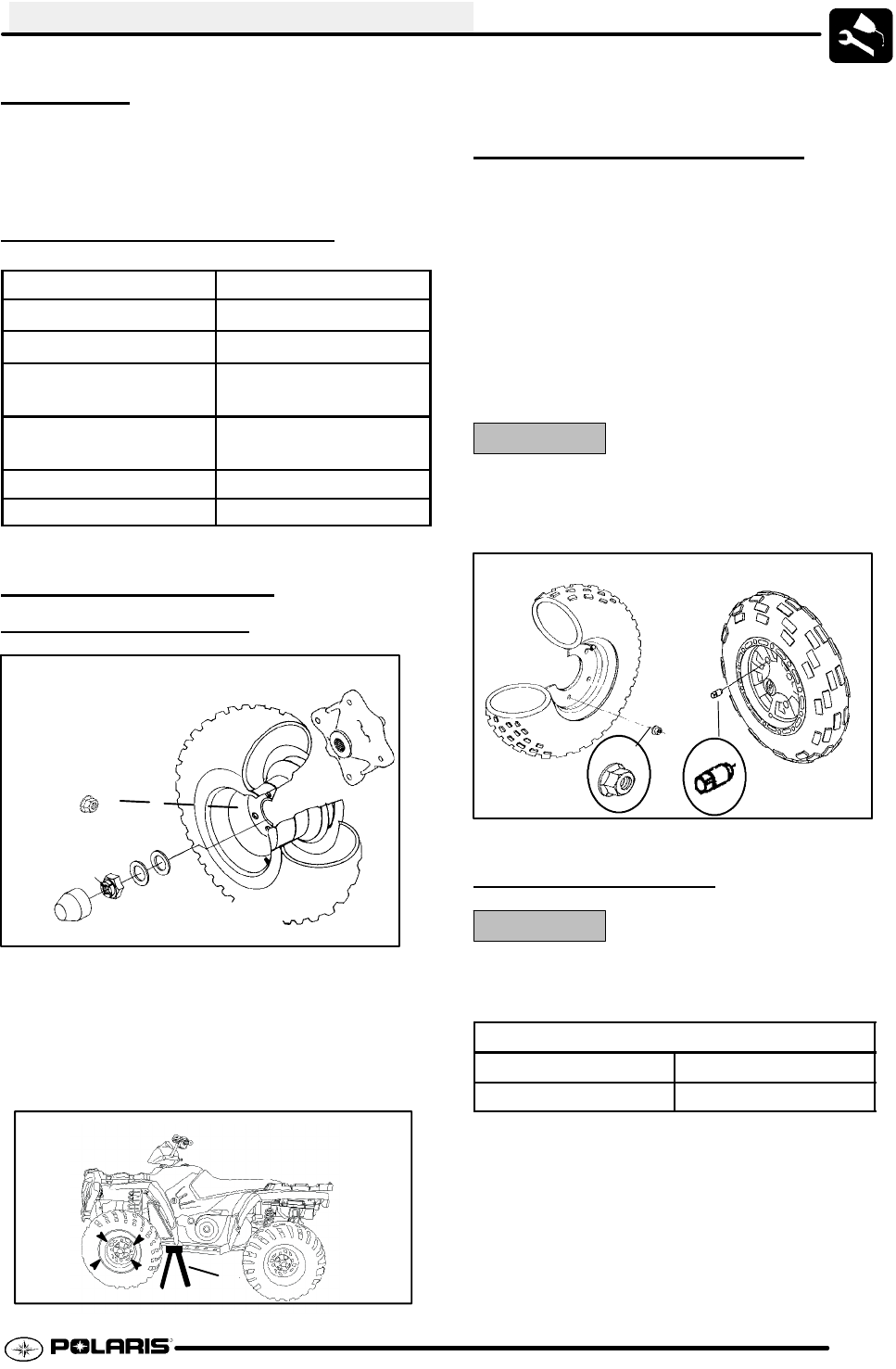
MAINTENANCE
2.31
WHEELS
Inspect all wheels for runout or damage. Check wheel
nuts and ensure they are tight. Do not over tighten the
wheel nuts.
WHEEL, HUB, TORQUE
Item Specification
Steel -- Front Wheel Nuts
30 Ft. Lbs. (41 Nm)
Steel -- Rear Wheel Nuts
30 Ft. Lbs. (41Nm)
Aluminum
Front Wheel Nuts
90 Ft. Lbs. (122 Nm)
Aluminum
Rear Wheel Nuts
90 Ft. Lbs. (122 Nm)
Front Hub Retaining Nut 70 ft.lbs. (90 Nm)
Rear Hub Retaining Nut 80 Ft. Lbs. (108 Nm)
WHEEL REMOVAL:
FRONT OR REAR
Front & Rear Wheels
1. Stop the engine, place the transmission in gear
and lock the parking brake.
2. Loosen the wheel nuts slightly.
3. Elevate the side of the vehicle by placing a
suitable stand under the footrest frame.
A
4. Remove the wheel nuts and remove the wheel.
WHEEL INSTALLATION
1. With the transmission in gear and the parking
brake locked, place the wheel in the correct
position on the wheel hub. Be sure the valve stem
is toward the outside and rotation arrows on the
tire point toward forward rotation.
2. Attach the wheel nuts and finger tighten them.
3. Lower the vehicle to the ground.
4. Securely tighten the wheel nuts to the proper
torque listed in the table.
CAUTION:
Improperly installed wheels could affect vehicle
handling and tire wear. On vehicles with tapered rear
wheel nuts, make sure tapered end of nut goes into
taper on wheel. Torque to proper specification.
Steel Wheel Aluminum Wheel
TIRE PRESSURE
CAUTION:
Maintain proper tire pressure. Refer to the warning
tire pressure decal applied to the vehicle.
Tire Pressure Inspection (PSI - Cold)
Front Rear
5 5



